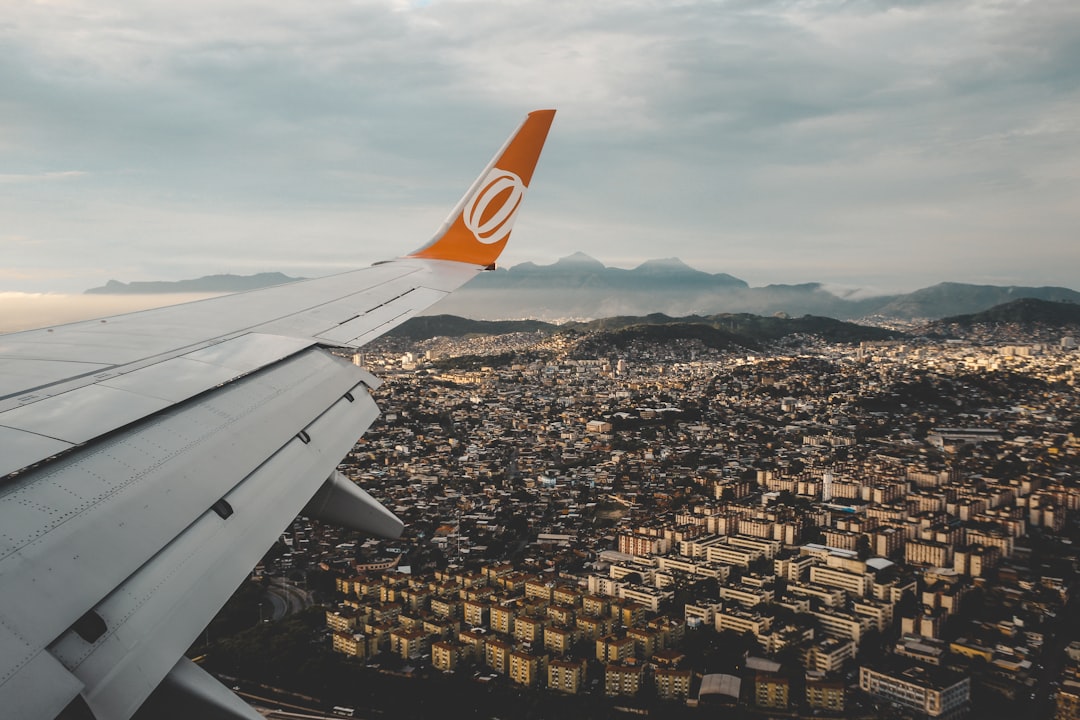Thailand Visa Options For Digital Nomads A Complete Guide

Overview
Thailand has become one of the most popular bases for digital nomads in Southeast Asia. Its affordable cost of living, reliable internet, vibrant expat community, and welcoming culture create an attractive environment for remote workers. However, staying long‑term requires the right visa. The country offers several visa routes that can accommodate a nomadic lifestyle, each with its own eligibility criteria, duration, and renewal possibilities. This guide walks you through every viable option, explains the required paperwork, highlights pros and cons, and provides practical tips for a smooth application and stay.
Tourist Visa (Single Entry and Multiple Entry)
The tourist visa is the most straightforward entry point for many remote workers. It is intended for short stays, but with careful planning it can be used for a semi‑long term presence.
Single‑Entry Tourist Visa
- Validity: 60 days from the date of entry.
- Extension: One 30‑day extension is possible at a local immigration office, bringing the total stay to 90 days.
- Who it suits: Travelers who want to test the country before committing to a longer visa, or those who plan short projects and can return to their home country frequently.
Multiple‑Entry Tourist Visa (MERV)
- Validity: Six months.
- Entries: Up to three entries, each allowing a stay of up to 60 days.
- Extension: Each entry can be extended once for 30 days.
- Who it suits: Nomads who travel in the region and want to hop in and out of Thailand without re‑applying for a new visa each time.
Key Considerations
- Tourist visas do not permit any form of local employment or income generation from Thai sources.
- The 90‑day limit per stay can be restrictive for those who need a stable base.
- Frequent border runs (leaving the country to reset the visa) can become costly and tiring.
Non‑Immigrant “B” (Business) Visa
The Non‑Immigrant B visa is designed for individuals who intend to conduct business activities, attend meetings, or work for a foreign employer while based in Thailand.
Eligibility
- A letter from your overseas employer confirming remote work arrangement.
- Proof of professional qualifications or a business registration if you are setting up a company in Thailand.
- Financial evidence showing sufficient funds to support yourself (usually a bank statement showing a minimum balance).
Duration and Extensions
- Initial stay: 90 days.
- Extension: Can be extended for up to one year at a local immigration office, provided you meet the financial and documentation requirements.
- Renewal: After a year, the visa can be renewed annually as long as the underlying business activity continues.
Advantages for Digital Nomads
- Allows you to stay for a full year without leaving the country.
- Offers the possibility to apply for a work permit if you decide to engage in Thai‑based contracts.
- More stable than tourist visas, reducing the need for frequent border runs.
Drawbacks
- Requires a formal letter from an employer or a registered Thai entity, which may be difficult for freelancers.
- The work permit process can be bureaucratic and time‑consuming.
Non‑Immigrant “O” (Other) Visa – Retirement and Long‑Term Stay
The Non‑Immigrant O visa is often associated with retirees, but it can also serve long‑term digital nomads who meet the financial thresholds.
Retirement Option (Age 50+)
- Age requirement: 50 years or older.
- Financial requirement: A monthly income of at least 65,000 THB or a bank deposit of 800,000 THB in a Thai bank for at least two months before the visa application.
- Extension: Renewable annually.
Long‑Term Stay for Others
- Financial requirement: Same as retirement – either a monthly income of 65,000 THB or a bank deposit of 800,000 THB.
- Additional documentation: Proof of health insurance covering the entire stay, a police clearance certificate, and a medical certificate.
- Extension: Renewable annually.
Why It May Appeal to Nomads
- The financial thresholds are relatively modest for many remote workers who earn in USD or EUR.
- Once granted, the visa provides a stable, year‑long stay with minimal paperwork each renewal.
- No need for a Thai sponsor or a local business registration.
Limitations
- The visa does not grant permission to work for a Thai company.
- Applicants must demonstrate a steady income or savings, which may be a hurdle for those with irregular cash flow.
Smart Visa (Category “S”)
Introduced to attract high‑skill professionals, investors, and startup founders, the Smart Visa offers an attractive package for digital nomads who meet the criteria.
Categories Within the Smart Visa
- Category “A” – Talent: For experts in targeted industries such as digital technology, biotech, robotics, and renewable energy.
- Category “B” – Investor: For individuals who invest a minimum of 20 million THB in a Thai company or government‑approved project.
- Category “C” – Executives/Managers: For senior staff of foreign companies operating in Thailand.
- Category “D” – Startup: For founders of approved startups in targeted sectors.
Benefits
- Validity: Up to four years, with the possibility of a one‑year extension.
- Work permission: No work permit required for the duration of the visa.
- No immigration reporting: Visa holders are exempt from the 90‑day reporting requirement.
- Family inclusion: Spouse and children can be added under the same visa.
Eligibility for Digital Nomads
- Professionals with a strong background in technology, data science, software development, or digital marketing may qualify under Category “A.”
- Freelancers who can demonstrate a contract with a Thai‑registered company in a targeted industry may also be considered.
- Startups that meet the Thai government’s innovation criteria can apply under Category “D.”
Application Process
- Submit an online application through the Thailand Board of Investment (BOI) portal.
- Provide a detailed CV, proof of employment or contracts, and evidence of qualifications.
- If approved, the BOI issues a letter of endorsement, which is then presented to the Thai embassy or consulate for visa issuance.
Potential Drawbacks
- The process is more rigorous than standard tourist or non‑immigrant visas.
- The targeted industries list may exclude some remote work fields.
- Applicants must maintain compliance with BOI reporting requirements.
Thailand Elite Visa
The Thailand Elite Visa is a long‑term residency program operated by the private company Thailand Privilege Card Company Limited. It is marketed as a “VIP” travel and residency solution.
Packages
- Premium (5‑year) – Approx. 600,000 THB.
- Elite (10‑year) – Approx. 1,000,000 THB.
- Super Elite (20‑year) – Approx. 2,000,000 THB.
Included Benefits
- Visa‑free entry and exit for the duration of the package.
- Access to exclusive airport lounges, golf courses, and concierge services.
- Assistance with immigration procedures, medical check‑ups, and tax consultations.
- No need for annual extensions or reporting.
Suitability for Nomads
- Ideal for remote workers who value convenience and are willing to invest in a premium service.
- Provides a hassle‑free stay without the need to renew visas yearly.
- Offers a sense of community through Elite member events.
Considerations
- The cost is significantly higher than other visa options.
- The visa does not grant work permission for Thai‑based employment.
- The program is a private service, not a government immigration route, which may affect perceptions for some.
Visa Extensions and 90‑Day Reporting
Regardless of the visa type, most non‑immigrant visas require the holder to report their current address to Thai immigration every 90 days. The process is simple:
- Visit the nearest immigration office with your passport and TM‑6 (departure card).
- Fill out the reporting form and present it to the officer.
- Receive a stamped receipt confirming compliance.
Failure to report can result in fines or visa cancellation. Some visas, like the Smart Visa and Thailand Elite, are exempt from this requirement.
Required Documents – A Consolidated Checklist
While each visa category has specific demands, most applications share a core set of documents:
- Valid passport (minimum six months validity).
- Passport‑size photos (white background, 4 × 6 cm).
- Completed visa application form (available on the embassy website).
- Proof of financial means (bank statements, salary slips, or investment certificates).
- Letter of employment or contract (for business‑related visas).
- Travel itinerary (flight bookings, accommodation reservations).
- Health insurance coverage (minimum coverage for medical expenses in Thailand).
- Police clearance certificate (for long‑term stays and retirement visas).
- Medical certificate (showing no communicable diseases).
- BOI endorsement letter (for Smart Visa applicants).
Always verify the latest document requirements on the official website of the Thai embassy or consulate where you will apply, as regulations can change.
Application Process – Step by Step
1. Determine the Best Visa for Your Situation
Assess your age, income, professional field, and length of intended stay. Use the overview above to narrow down the most suitable option.
2. Gather All Required Documents
Create a dedicated folder (digital and physical) and double‑check each item against the checklist for your chosen visa.
3. Submit the Application
- Online submission: Some visas, like the Smart Visa, allow you to file an initial application online.
- In‑person submission: For most tourist, non‑immigrant, and retirement visas, you must visit the Thai embassy or consulate in your home country or a neighboring country.
- Visa processing fee: Pay the appropriate fee (fees vary by visa type and embassy).
4. Attend an Interview (if required)
Certain visas may require a brief interview. Prepare to answer questions about your travel purpose, financial stability, and plans while in Thailand.
5. Wait for Approval
Processing times range from a few days for tourist visas to several weeks for Smart Visas. Keep a copy of the receipt and any tracking number.
6. Collect Your Visa
Pick up your passport with the visa stamp, or have it mailed to you if the embassy offers that service.
7. Enter Thailand
Present your passport and visa at immigration. The officer will issue a TM‑6 departure card—keep it safe as you will need it for reporting and any future extensions.
8. Register with Local Authorities (if applicable)
For long‑term stays, you may need to register your residence at the local district office (Amphoe) within 24 hours of arrival.
9. Plan for Extensions
Mark your calendar for the visa expiry date. Start the extension process at least two weeks before it ends to avoid overstaying.
Costs Overview
| Visa Type | Approximate Fee (USD) | Initial Stay | Extension Possibility |
|---|---|---|---|
| Single‑Entry Tourist | 50‑70 | 60 days | One 30‑day extension |
| Multiple‑Entry Tourist | 150‑200 | 6 months (3 entries) | Extensions per entry |
| Non‑Immigrant B | 80‑100 | 90 days | Up to 1 year, renewable |
| Non‑Immigrant O (Retirement) | 60‑80 | 90 days | Annual renewal |
| Smart Visa (Category A‑D) | 500‑800 | 4 years | 1‑year extension |
| Thailand Elite (Premium) | 600,000 THB (~16,500 USD) | 5 years | No extension needed |
| Thailand Elite (Elite) | 1,000,000 THB (~27,500 USD) | 10 years | — |
| Thailand Elite (Super Elite) | 2,000,000 THB (~55,000 USD) | 20 years | — |
Note: Fees are subject to change and may vary by embassy location.
Living in Thailand as a Digital Nomad
Accommodation
- Bangkok: High‑rise apartments in Sukhumvit, Silom, or Sathorn. Prices range from $300 to $800 per month for a one‑bedroom unit.
- Chiang Mai: Popular with creatives, budget apartments start at $200 per month. Co‑working spaces are abundant.
- Phuket & Koh Samui: Island life comes with higher costs; beachfront studios can exceed $1,000 per month.
Internet Connectivity
- Fiber optic: Available in major cities; speeds of 100‑300 Mbps are common.
- Mobile data: 4G LTE coverage is extensive. Tourist SIM cards (e.g., AIS, TrueMove, dtac) offer unlimited data plans for $15‑$25 per month.
- Co‑working spaces: Provide reliable Wi‑Fi, power backups, and networking opportunities. Notable locations include Hubba (Bangkok), Punspace (Chiang Mai), and The Hive (Phuket).
Cost of Living
- Food: Street food meals cost $1‑$3; mid‑range restaurant dishes $5‑$12.
- Transportation: BTS/MRT rides $0.50‑$2; motorbike rentals $60‑$100 per month.
- Health insurance: International plans range from $80‑$200 per month, covering hospitalization and outpatient care.
Community and Networking
- Meetups organized through platforms like Meetup.com, Facebook groups (e.g., “Digital Nomads Thailand”), and co‑working events.
- Language exchange sessions help bridge cultural gaps and improve Thai language skills.
Frequently Asked Questions
Can I work for a foreign company while on a tourist visa?
Technically, the tourist visa does not permit any work activity, even if the income is earned abroad. While enforcement is lax for remote freelancers, there is a risk of being flagged if you conduct business meetings or sign contracts inside Thailand.
Do I need a work permit if I obtain a Smart Visa?
No. The Smart Visa grants work permission for its entire validity period, eliminating the need for a separate work permit.
What happens if my visa expires while I am abroad?
If you leave Thailand before the visa expires, you can re‑enter using a new visa (tourist, non‑immigrant, etc.). Overstaying can lead to fines of 500 THB per day, a possible blacklist, and difficulty obtaining future Thai visas.
Can I add family members to my visa?
Yes, most long‑term visas (Non‑Immigrant O, Smart Visa, Thailand Elite) allow dependents to be listed as secondary applicants. You will need to provide marriage certificates, birth certificates, and proof of sufficient funds for each dependent.
Is it possible to convert a tourist visa to a non‑immigrant visa while in Thailand?
Conversion is allowed in some cases, but the process is cumbersome and often requires you to leave the country and re‑apply from abroad. It is generally more efficient to plan the appropriate visa before arrival.
Final Tips for a Smooth Stay
- Plan ahead: Visa applications can take weeks. Start the process at least two months before your intended departure.
- Keep copies: Store digital copies of all documents in a secure cloud folder; you may need to resend them for extensions.
- Stay compliant: Mark the 90‑day reporting dates on your calendar and set reminders.
- Maintain financial proof: Keep your bank statements updated; sudden drops in balance can trigger visa renewal complications.
- Build a local network: Connecting with other nomads and expats provides support, insider tips on immigration offices, and social opportunities.
- Consider a hybrid approach: Some nomads use a combination of tourist visas for short stays and a Non‑Immigrant O or Smart Visa for longer periods, switching as needed.
Thailand’s visa landscape offers flexibility for a wide range of remote workers. By understanding each option, preparing the necessary paperwork, and staying organized, you can enjoy a stable, inspiring base in the Land of Smiles while you build your digital career. Safe travels and enjoy the journey!
Random Posts

Smart Tax Strategies and Residency Choices for Digital Nomads
Discover how digital nomads can cut taxes and stay compliant by choosing the right residency, structuring income, and leveraging smart visa options in a clear step-by-step roadmap.
6 days ago

Mastering Remote Collaboration Across Time Zones
Learn how to turn global time zone differences into a competitive edge. This guide shares mental models, practical tactics and tools to build a collaboration system that respects each rhythm while delivering results.
2 weeks ago

Portugal Cost of Living Guide for Digital Nomads
Discover how Portugal lets digital nomads enjoy sunshine, fast internet and a vibrant community while keeping monthly expenses low with practical budgeting tips.
2 months ago

Seasonal Escapes for Nomads in the Old Continent
Discover Europe's perfect seasonal hubs for digital nomads: spring tulip fields in the Low Countries, summer coastlines of Spain, autumn vineyards of Portugal, winter Alpine retreats, all with reliable Wi-Fi, affordable living and vibrant local vibes
3 months ago

Building a Global Community for Sustainable Digital Nomads
Discover how digital nomads can unite around eco-friendly practices, low-impact packing, shared resources, and collective advocacy to keep the nomadic lifestyle thriving without harming the planet
1 month ago
Latest Posts

Essential Software Every Remote Professional Should Use
Master remote work with essential tools: instant messaging like Slack, high definition video calls such as Zoom, and asynchronous voice apps. Streamline communication, stay connected and boost productivity.
1 day ago

Mastering Remote Work Productivity for Digital Nomads and Freelancers
Learn proven habits, tools, and tactics that help digital nomads and freelancers stay focused, deliver quality work, and maintain a sustainable lifestyle while traveling the world.
1 day ago

Tech‑Friendly European Towns Perfect for Remote Living
Discover Europe’s best small towns where fast internet, affordable living and vibrant tech communities let you work remotely while soaking up historic charm, lakeside views or mountain air.
1 day ago